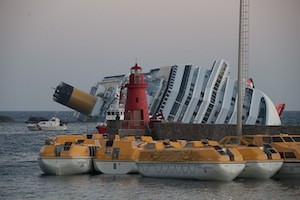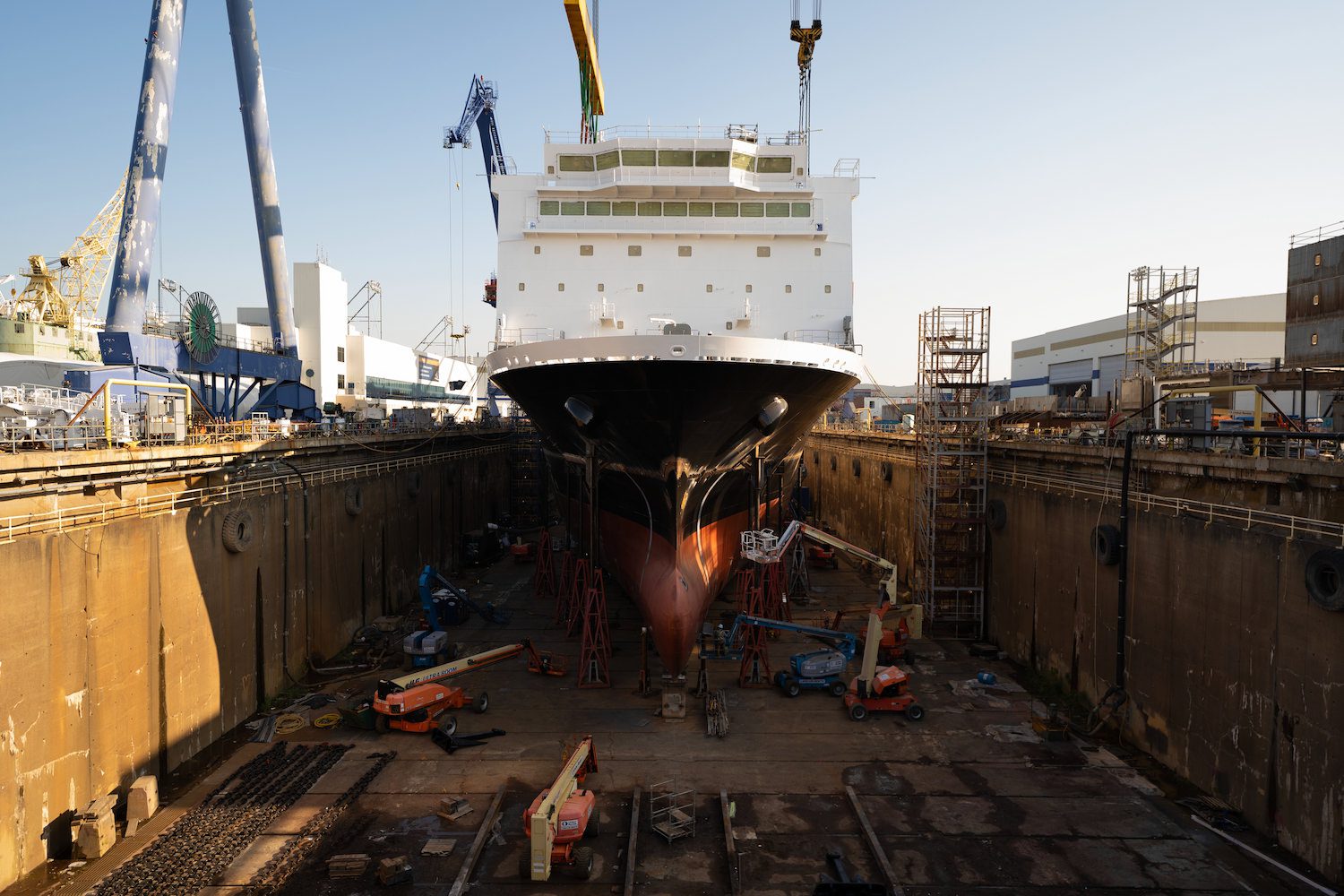NEW YORK (Dow Jones) — Carnival Corp. (CCL) reported a better fiscal first quarter than expected despite the shipwreck of its Costa Concordia, and reassuring trends in other brands tempered reaction to the cruise operator’s sharp reduction to its full-year earnings outlook.
Shares were down 1.7% at $30.43 in recent trading after initially climbing following the release, as investors digested the complicated results. Through Thursday’s close, the stock has fallen about 9% since the Costa crash in January.
Executives on a conference call with analysts said that recently, the issue of the Concordia incident has fallen away as a major obstacle to selling cruises. They said traveler focus has returned to looking for value, adding that apart from the Costa situation, business is getting better.
Chairman and Chief Executive Micky Arison said the No. 1 booking restraint for travelers now is the expectation prices will fall, not safety worries.
“Any consumers holding out for deeper-than-normal discounts may be disappointed,” he said, as Carnival executives said the company wasn’t altering its long-term strategy on occupancy and prices.
Chief Operating Officer Howard S. Frank said booking trends in January before the Concordia incident had been “quite strong,” driven by North American brands’ higher booking volumes at higher pricing. Bookings were up in Europe, Australia and Asia brands although slowing economies and austerity programs in Europe weiged on pricing.
Since the Costa grounding, booking patterns excluding Costa slowed significantly. On a fleetwide basis, bookings for the last seven weeks were down in a mid-to-high-single-digit percentage at slightly lower prices.
As for Costa, the brand halted all marketing, had to rebook or refund cruisers who would have been on future Concordia trips and offered all Costa passengers the chance to cancel cruises in the weeks following the crash, though Frank noted relative few passengers did.
As a result in the first weeks after the grounding, Costa bookings were down at least 80% from a year earlier. However, during the last three weeks to March 4, bookings were 40% to 50% lower with virtually no marketing, painting an improving booking picture.
Frank said the company is starting to ramp up marketing for Costa in some markets and the brand sees a light at the end of a long tunnel. The company expects it will take about a year for booking trends to stabilize in some Costa markets, but executives reiterated Carnival’s commitment to the Costa business.
The company also said Costa has adopted a strategy of minimizing discounting and, if necessary, operating at reduced occupancy levels in the short term, meaning the brand would be a drag on results as it recovers.
Carnival lowered its outlook for net revenue yields — a key cruise industry metric that measure revenue in relation to available capacity — to a 2%-to-4% decline this year on a constant-dollar basis. In December, it had projected net revenue yields in constant dollars would be up 1% to 2%. However, it also predicted that excluding Costa, 2012 net revenue yields would be in line with the prior year.
It projected full-year earnings of $1.40 to $1.70 a share, below the average expectation of analysts surveyed by Thomson Reuters. In late January, Carnival said costs from Concordia and fuel would lower its 2012 earnings and indicated an outlook of $2.04 to $2.37 a share.
Friday’s outlook also includes an expectation for a harsher hit from higher fuel costs.
For the current quarter, the company predicted earnings of 5 cents to 9 cents a share, lower than analysts expected, on a decline of 2.5% to 3.5% in constant-dollar revenue yields.
Carnival swung to the red in the quarter ended Feb. 29, reporting a loss of $139 million, or 18 cents a share, compared with a year-earlier profit of $152 million, or 19 cents a share. But excluding a large write-down and smaller gain from fuel hedging in the latest period, earnings fell to 2 cents a share, better than the per-share loss of 5 cents to 9 cents loss it had predicted in late January. Analysts were expecting a loss of 8 cents a share.
Revenue increased 4.8% to $3.58 billion, just above the consenus view. Net revenue yields increased 2.9%, better than the company had predicted even before the Concordia wreck.
Fuel prices in the quarter were up 30%.
Last year, Carnival’s results had been encouraging. Revenue rose all through fiscal 2011, though Carnival’s bottom line continues to face pressure from rising fuel expenses, which the company has been mitigating with other cost controls and a new fuel-derivatives program. By the second half of the year, Carnival appeared to be righting itself from travel disruptions caused by Japan’s earthquake and tsunami and ongoing unrest in the Middle East and North Africa.
-By Joan E. Solsman, Dow Jones Newswires
Unlock Exclusive Insights Today!
Join the gCaptain Club for curated content, insider opinions, and vibrant community discussions.

 Join The Club
Join The Club













